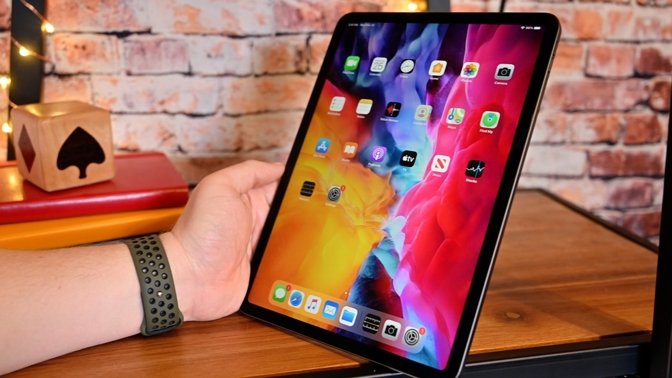Apple cancels OLED display for 2022 iPad Air
Apple has reported cancelled a project with Samsung to develop an OLED display for the 2022 iPad Air, because of cost, brightness, and durability problems.

Apple was previously reported to be planning an iPad Air update with OLED screens for 2022, with the iPad Pro getting it in 2023. Now it's claimed that at least the iPad Air date is in doubt, as Apple is not satisfied with Samsung's progress in developing the screen.
According to The Elec, Apple has called off the Samsung project. Unnamed sources told the publication that the reason is to do with how Samsung was aiming to produce a single-stack OLED panel, where Apple wants a two-stack tandem structure.
From Apple's perspective, a single-stack is not bright enough, and it also may not have a sufficient lifespan for how long people tend to hold on to their iPads. A two-stack system, by comparison, doubles the possible brightness.
It's not known what lifespan a single stack OLED panel would be expected to get, but the sources say a two-stack system extends the lifespan by up to four times.
From Samsung's perspective, the costs of a two-stack system are reportedly not viable unless the iPad Air would be sold for a long time.
The OLED iPad Pro models may yet be released in 2023 as expected. According to The Elec, the OLED technology planned for those models was already different to that intended for the iPad Air.
Read on AppleInsider

Apple was previously reported to be planning an iPad Air update with OLED screens for 2022, with the iPad Pro getting it in 2023. Now it's claimed that at least the iPad Air date is in doubt, as Apple is not satisfied with Samsung's progress in developing the screen.
According to The Elec, Apple has called off the Samsung project. Unnamed sources told the publication that the reason is to do with how Samsung was aiming to produce a single-stack OLED panel, where Apple wants a two-stack tandem structure.
From Apple's perspective, a single-stack is not bright enough, and it also may not have a sufficient lifespan for how long people tend to hold on to their iPads. A two-stack system, by comparison, doubles the possible brightness.
It's not known what lifespan a single stack OLED panel would be expected to get, but the sources say a two-stack system extends the lifespan by up to four times.
From Samsung's perspective, the costs of a two-stack system are reportedly not viable unless the iPad Air would be sold for a long time.
The OLED iPad Pro models may yet be released in 2023 as expected. According to The Elec, the OLED technology planned for those models was already different to that intended for the iPad Air.
Read on AppleInsider

Comments
It's these lack of details that help stoke the Apple is too expensive FUD and my Samsung tablet has OLED and is way cheaper.
Really wish Apple or the reviewer (if they knew) would help educate the consumers on these differences.
My guess is that Apple is experimenting with mini-LED in preparation for micro-LED and any use of OLED is a stopgap while they work on micro-LED.
So, the OLED rumors may have stemmed from this negotiation, not real prototype hardware.
My guess is still that miniLED will have a 3 to 4 year run in Apple products. The MBP14/16 will be miniLED for late this fall. The iPad Pro 11 will be miniLED in 2022. Then, the "affordable" Apple monitor probably will be miniLED. It will then waterfall down to MBA with a miniLED in 2022 or 2023. A second gen miniLED panel with say 40k LEDs and 8000 zones may nick at blooming issues enough that it won't really be a problem for 99% of the use cases.